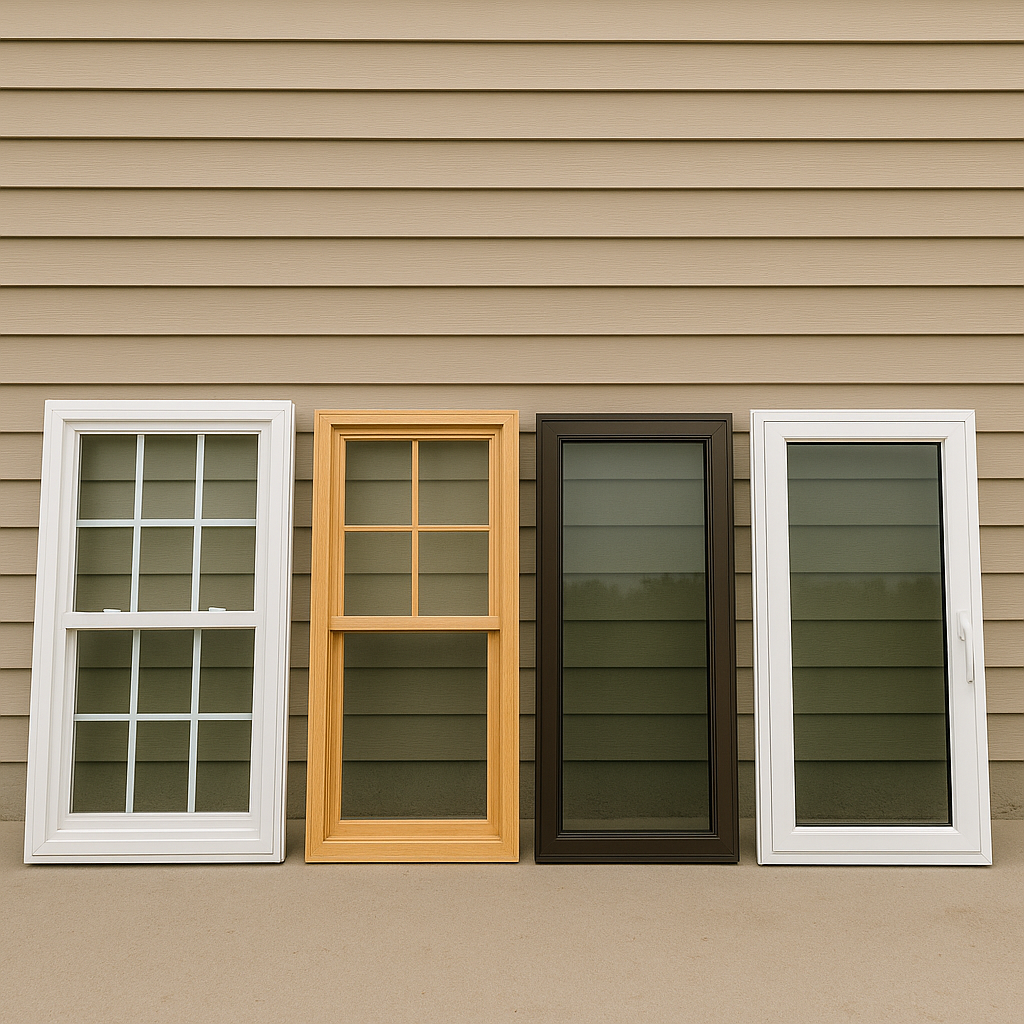
Replacement Window Options
Explore the costs and benefits of casement windows in 2025, including sizes, materials, installation factors, and more for UK homeowners.
Replacement Window Options: Styles, Materials, and Costs
Replacement windows are a practical solution for UK homeowners looking to upgrade outdated, inefficient, or damaged windows without altering the existing wall structure. In 2025, with advancements in energy-efficient glazing and durable materials, replacement windows offer a balance of aesthetics, functionality, and cost savings. This guide explores the various styles, materials, and costs of replacement window options, helping you choose the best fit for your home.
Unlike new construction windows, replacement windows are designed to fit into existing frames, minimizing disruption during installation. Whether you’re aiming to boost energy efficiency, enhance curb appeal, or address wear and tear, understanding your options is key to making an informed decision.
What Are Replacement Windows?
Replacement windows are custom-made to fit existing window openings, avoiding the need for extensive structural changes. They’re ideal for upgrading older homes or replacing damaged windows. Here’s how they compare to new construction windows:
| Type | Installation | Best For |
|---|---|---|
| Replacement | Fits into existing frame | Upgrading existing windows |
| New Construction | Nailed to wall frame | New builds, major renovations |
Replacement Window Styles
Replacement windows come in various styles to suit different architectural and functional needs. Here are the most popular options in the UK for 2025:
| Style | Description | Best For |
|---|---|---|
| Casement | Hinged, swings outward | Versatile, modern homes |
| Sash | Slides vertically or horizontally | Period or traditional homes |
| Tilt and Turn | Tilts inward or opens like casement | Ventilation, easy cleaning |
| Fixed/Picture | Non-opening, large glass area | Max light, minimal maintenance |
Casement windows are the most common due to their versatility, while sash windows are popular for heritage properties. Tilt and turn windows offer flexibility, and fixed windows maximize light in areas where ventilation isn’t needed.
Material Options and Costs
The material of replacement windows affects cost, durability, and aesthetics. Below is a cost comparison for a standard 1200mm x 1200mm window in the UK for 2025, including installation:
| Material | Cost Range | Pros | Cons |
|---|---|---|---|
| uPVC | £400-£800 | Affordable, low maintenance | Less premium aesthetic |
| Aluminium | £600-£1,000 | Sleek, durable, slim frames | Higher cost, less insulation |
| Timber | £800-£1,400 | Classic look, good insulation | Requires regular maintenance |
| Composite | £700-£1,200 | Wood look, low maintenance | Higher cost than uPVC |
uPVC is the most budget-friendly, while timber suits period homes but requires upkeep. Aluminium is ideal for modern designs, and composite materials offer a low-maintenance alternative with a wood-like appearance.
Factors Affecting Replacement Window Costs
Several factors influence the cost of replacement windows. Here’s a breakdown:
| Factor | Description | Impact on Cost |
|---|---|---|
| Size | Larger or custom sizes | Adds £150-£800 per window |
| Glazing | Double or triple glazing | Adds £100-£300 per window |
| Material | uPVC, aluminium, timber, composite | See material table |
| Installation | Labour and frame adjustments | £100-£300 per window |
| Special Features | Low-e coatings, argon gas, security | £50-£200 per window |
For listed buildings, additional costs of £100-£200 may apply for compliance with heritage regulations. Always choose FENSA-registered installers to ensure quality and adherence to UK standards.
Additional Installation Costs
Installation of replacement windows involves minimal structural work but still incurs some costs:
| Expense | Typical Cost | Notes |
|---|---|---|
| Removal of Old Window | £50-£150 | Depends on frame condition |
| Finishing | £100-£250 | Plastering, sealing, trim work |
| Building Regulations | £100-£200 | FENSA certification |
Installation is typically quicker and less invasive than for new construction windows, keeping costs lower. Urban areas may see higher labour rates, particularly in London.
Return on Investment (ROI)
Replacement windows offer significant benefits, from energy savings to increased property value:
| Benefit | Estimated Savings/Value | Timeframe |
|---|---|---|
| Energy Savings | £80-£250/year | Ongoing with efficient glazing |
| Property Value Increase | 2-5% of home value | Upon resale |
| Payback Period | 8-12 years | Based on savings and value |
Final Thoughts
Replacement windows are a smart investment for UK homes, with costs ranging from £400 for uPVC casement windows to £1,400 for premium timber options. Style, material, and glazing choices shape the price, but the benefits—energy efficiency, enhanced aesthetics, and increased property value—make them worthwhile. For the best results, seek three quotes from FENSA-registered installers and prioritize energy-efficient features to maximize long-term savings and comfort.